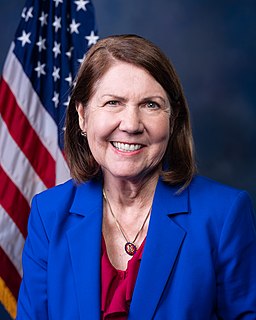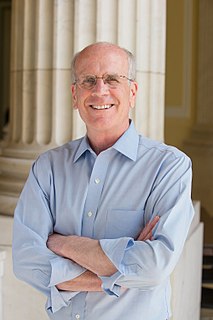A Quote by Ron DeSantis
If Congress adds 5 percent to the debt, then their pay should be cut by 5 percent.
Related Quotes
If you have to pay about forty to forty-three percent of your income for housing, you also have to pay fifteen percent of your paycheck for the FICA for Social Security wage withholding. You have to pay medical care, you have to pay the banks for your credit card debt, student loans. Then you only have about twenty-five or thirty-five percent, maybe one-third of your salary to buy goods and services. That's all.
We need a wealth tax that on a one-time basis is going to take back at least some small fraction of the great windfall that the upper 1 percent, or 5 percent and pay down the government debt, pay back the federal debt because we can't put this on the next generation or they're going to be buried paying taxes.
If you ask the question of Americans, should we pay our bills? One hundred percent would say yes. There's a significant misunderstanding on the debt ceiling. People think it's authorizing new spending. The debt ceiling doesn't authorize new spending; it allows us to pay obligations already incurred.
My approach to cutting spending as president, is to do a ten percent across the board cut of all federal agencies, and then ask each of my new agency heads to find another ten percent by drilling down. That's what you do in business to come up with approximately 20 percent cuts for the first fiscal year budget.
The American Journal of Clinical Nutrition claims that a moderate beer drinker - whatever that means - swallows 11 percent of his dietary protein needs, 12 percent of the carbohydrates, 9 percent of essential phosphorus, 7 percent of his riboflavin, and 5 percent of niacin. Should he go on to immoderate beer drinking, he becomes a walking vitamin pill.
The United States of American business pays the second-highest business taxes in the world, 35 percent. Ireland pays 11 percent. Now, if you're a business person, and you can locate any place in the world, then, obviously, if you go to the country where it's 11 percent tax versus 35 percent, you're going to be able to create jobs, increase your business, make more investment, et cetera. I want to cut that business tax. I want to cut it so that businesses will remain in the United States of America and create jobs.
The Hispanic population grew by 4.7 percent last year, while blacks expanded by 1.5 percent and whites by a paltry 0.3 percent. Hispanics cast 6 percent of the vote in 1990 and 12 percent in 2000. If their numbers expand at the current pace, they will be up to 18 percent in 2010 and 24 percent in 2020. With one-third of Hispanics voting Republican, they are the jump ball in American politics. As this vote goes, so goes the future.
































